IDP.ALEXA.52 is a virus detection primarily related to on the internet video games such as “SeaMonkey”, “Plants vs. Zombies” and also others. The found object is reported to come from from.tmp and.exe files situated in different Windows folders, such as the %appdata% and %temp%. Despite the false positive records by scientists, it is generally detected by AVG as malware as well as reported to be potentially hazardous for damaged computers.
IDP.ALEXA.52 Virus
According to latest information, it appears that this could be a brand-new version of IDP.ALEXA.51 that shows up to have started a massive discovery project. Now we do not know whether or not the trouble can be found with Avast or AVG, but it looks like a brand-new version of the malware.
It appears that users have been having concerns when attempting to play particular video games (Attila, Rome II, Warhammer II). The issue continues to be some antivirus programs. One user, as an example, has actually cooperated a reddit string that IDP.ALEXA.52 malware was discovered by AVG for the setup.exe in some application. One more user has been having similar concerns with Attila and Rome II video games.

Threat Summary
| Name | IDP.ALEXA.52 |
| Type | Possible Malware Detection |
| Short Description | May steal information and log the keystrokes you type, but may also come out as false positive detection (fake). |
| Symptoms | The detection could appear as malware in AVG or Avast antivirus software. |
| Distribution Method | Currently Unknown. |
| Detection Tool |
See If Your System Has Been Affected by malware
Download
Malware Removal Tool
|
User Experience | Join Our Forum to Discuss IDP.ALEXA.52. |
IDP.ALEXA.52 Virus Description and Activity
Unfortunately, AVG users have continued to report issues with the IDP.ALEXA.52 discovery. Users are reporting that every single time they start their computer systems the AVG check interrupts the startup procedure, wanting to remove the so-called “Alexa Virus”. Even though the protection firm stated it was dealing with a solution almost a year ago, in July 2016, their clients are constantly taking care of the irritating detection. To be entirely certain that you have not been influenced by malware or spyware, continue to the end of the write-up where you will discover even more details on defining as well as removing the concern.
During the course of 2020 user are still reporting concerns of Avast finding the meant IDP.ALEXA.52 infection. As we advise, you should pay very close attention to the steps provided at the bottom of the post to ensure that you get rid of any potential threats related to IDP.ALEXA.52. Antivirus vendors have reported that the detection may be a false-positive issue from the antivirus programs themselves, yet advise that viruses might impersonate such false detection as well as if spotted, you need to extensively remove the data to eliminate any type of danger.
The IDP.ALEXA.52 detection can also be causing troubles for individuals that are playing on the internet video games like “SeaMonkey” and also “Plants vs. Zombies”. Considering that AVG remains to discover it as malicious, it is best to proceed with scanning the system to see to it it’s malware-free.
The IDP.ALEXA.52 danger is still being spotted, most notably on makers running Windows 8.1. Avira and various other security programs have actually spotted it initially of the month. Portugal and Brazil appear to be primarily targeted, which does not indicate that those are the major target of IDP.ALEXA.52.
Users over online forums have whined that they got the discovery message after a reactivate of the 8.1 Windows variation. Records have actually developed on AVG support online forums that the antivirus software program is showing a false positive, and also they haven’t seen anything off the beaten track with their systems, only that it was related to the complying with files:.
- Setup.exe
- The erasing of important information on the contaminated computer system, consisting of important Windows data.
- Install.exe
- Seamonkey.exe
If malware, the software program may have shown up in the form of an undesirable download. This may be because of a destructive download, a straight download because of redirect, on-line message, clicking a destructive link or an unsafe email add-on in a spam message.
In spite of being massively reported as an incorrect positive, AVG experts have actually supplied info that the discovery may additionally be harmful.
In case the detection is malware, it might disrupt the regular work of the system as well as open up a backdoor, enabling a cyberpunk to access the tool from range and also collect information. Other destructive activities related to this detection may include:.
- Obtaining info directly from the hard disk or using its room along with the arbitrary gain access to memory of the compromised PC. This might result in computer failures as well as also BSODs (system crash).
- The erasing of important information on the contaminated computer system, consisting of important Windows data.
- Live gain access to from a distance being supplied to cyberpunks.
- Unwanted setup of unapproved software application on the computer system.
- Acquiring other details for advertising and marketing purposes.
In case you have experienced any one of the above-mentioned symptoms recently, then you may have been infected. Safety and security experts suggest affected users to submit dubious files to VirusTotal for an online check in case they feel insecure.

IDP.ALEXA.52 – How to Remove It
To stop the IDP.ALEXA.52 discovery it is important to inspect whether or not you have malware initially. To seek affected files run an on-demand check with your antivirus program of the folder where the first discovery has actually been come across. Also, it is suggested to download and install an innovative anti-malware software application that will check your computer system as well as see to it to eliminate any type of intrusions if identified.
Preparation before removing IDP.ALEXA.52.
Before starting the actual removal process, we recommend that you do the following preparation steps.
- Make sure you have these instructions always open and in front of your eyes.
- Do a backup of all of your files, even if they could be damaged. You should back up your data with a cloud backup solution and insure your files against any type of loss, even from the most severe threats.
- Be patient as this could take a while.
- Scan for Malware
- Fix Registries
- Remove Virus Files
Step 1: Scan for IDP.ALEXA.52 with SpyHunter Anti-Malware Tool
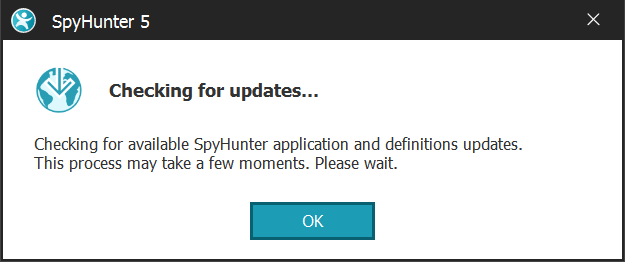
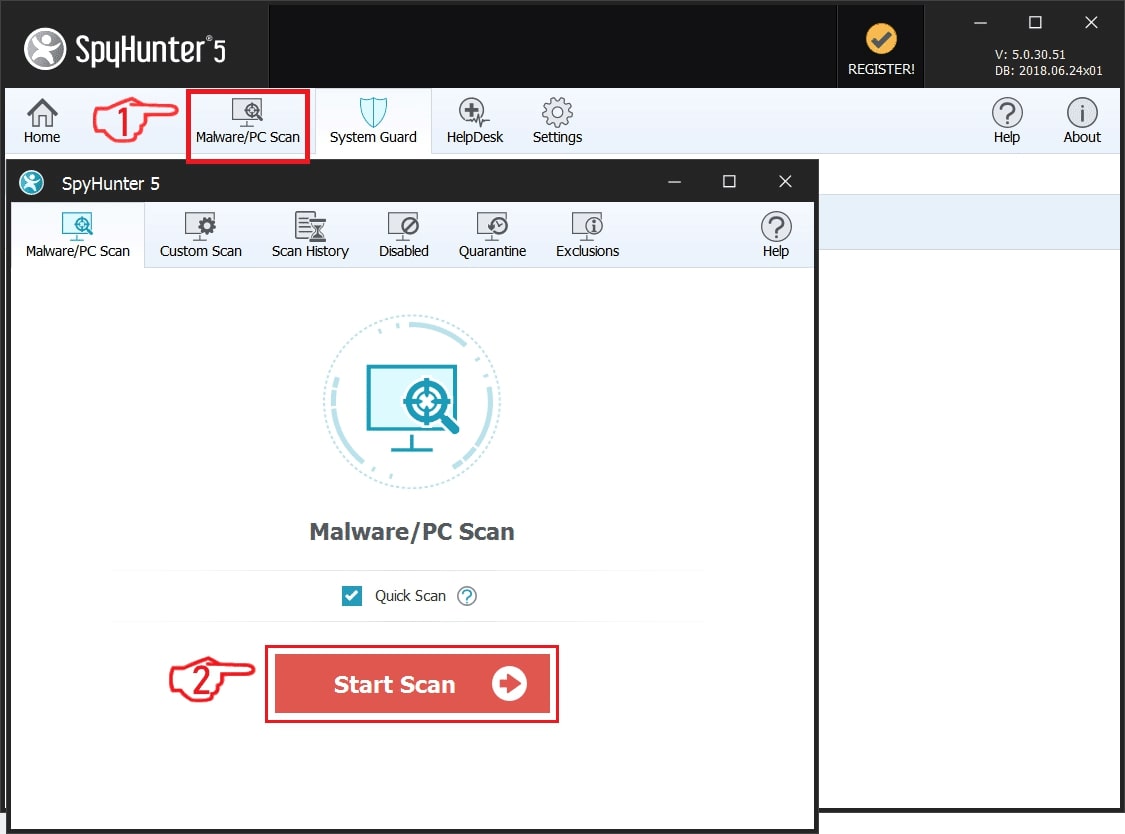
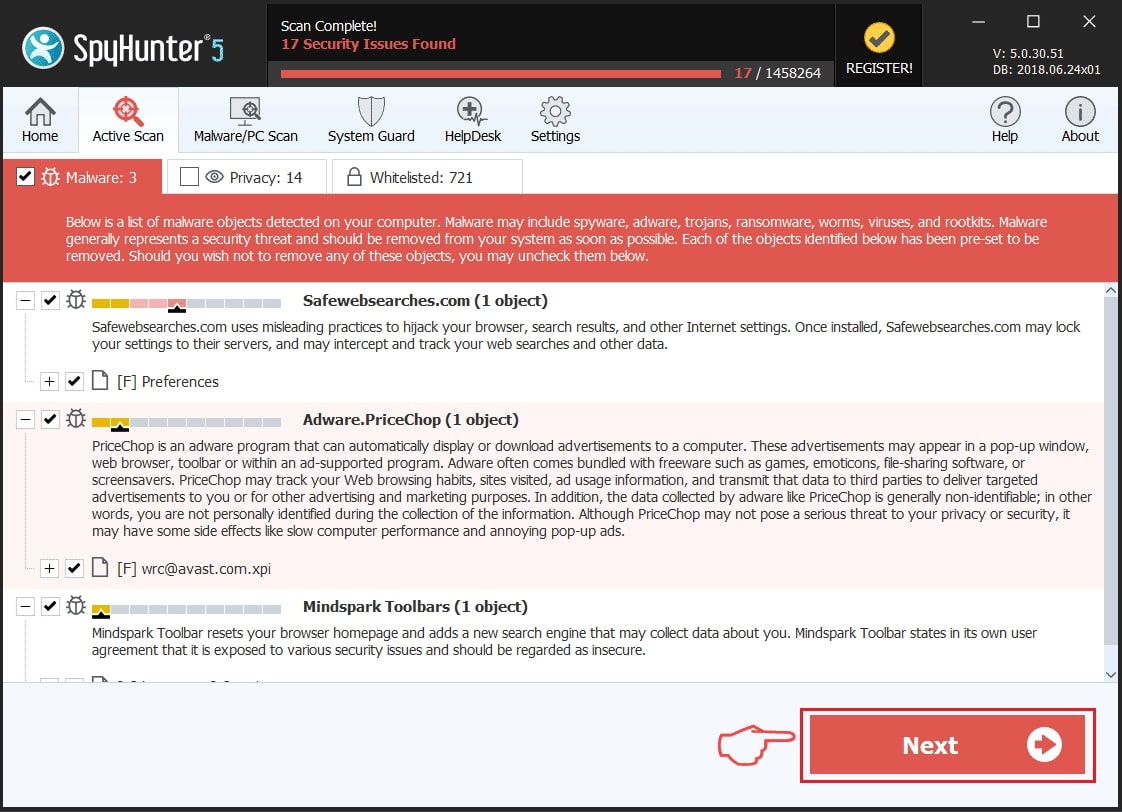
Step 2: Clean any registries, created by IDP.ALEXA.52 on your computer.
The usually targeted registries of Windows machines are the following:
- HKEY_LOCAL_MACHINE\Software\Microsoft\Windows\CurrentVersion\Run
- HKEY_CURRENT_USER\Software\Microsoft\Windows\CurrentVersion\Run
- HKEY_LOCAL_MACHINE\Software\Microsoft\Windows\CurrentVersion\RunOnce
- HKEY_CURRENT_USER\Software\Microsoft\Windows\CurrentVersion\RunOnce
You can access them by opening the Windows registry editor and deleting any values, created by IDP.ALEXA.52 there. This can happen by following the steps underneath:
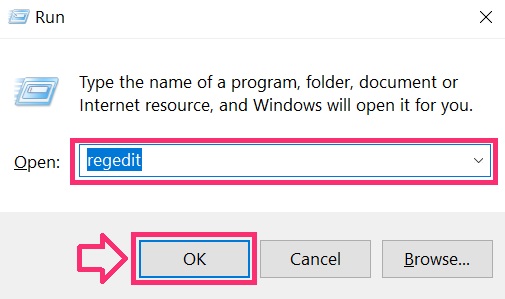

 Tip: To find a virus-created value, you can right-click on it and click "Modify" to see which file it is set to run. If this is the virus file location, remove the value.
Tip: To find a virus-created value, you can right-click on it and click "Modify" to see which file it is set to run. If this is the virus file location, remove the value.Step 3: Find virus files created by IDP.ALEXA.52 on your PC.
1.For Windows 8, 8.1 and 10.
For Newer Windows Operating Systems
1: On your keyboard press + R and write explorer.exe in the Run text box and then click on the Ok button.
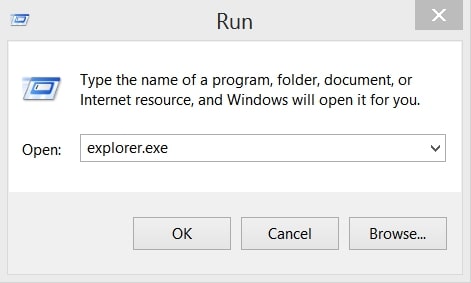
2: Click on your PC from the quick access bar. This is usually an icon with a monitor and its name is either “My Computer”, “My PC” or “This PC” or whatever you have named it.
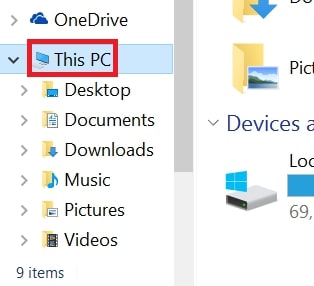
3: Navigate to the search box in the top-right of your PC's screen and type “fileextension:” and after which type the file extension. If you are looking for malicious executables, an example may be "fileextension:exe". After doing that, leave a space and type the file name you believe the malware has created. Here is how it may appear if your file has been found:

N.B. We recommend to wait for the green loading bar in the navigation box to fill up in case the PC is looking for the file and hasn't found it yet.
2.For Windows XP, Vista, and 7.
For Older Windows Operating Systems
In older Windows OS's the conventional approach should be the effective one:
1: Click on the Start Menu icon (usually on your bottom-left) and then choose the Search preference.

2: After the search window appears, choose More Advanced Options from the search assistant box. Another way is by clicking on All Files and Folders.

3: After that type the name of the file you are looking for and click on the Search button. This might take some time after which results will appear. If you have found the malicious file, you may copy or open its location by right-clicking on it.
Now you should be able to discover any file on Windows as long as it is on your hard drive and is not concealed via special software.
IDP.ALEXA.52 FAQ
What Does IDP.ALEXA.52 Trojan Do?
The IDP.ALEXA.52 Trojan is a malicious computer program designed to disrupt, damage, or gain unauthorized access to a computer system. It can be used to steal sensitive data, gain control over a system, or launch other malicious activities.
Can Trojans Steal Passwords?
Yes, Trojans, like IDP.ALEXA.52, can steal passwords. These malicious programs are designed to gain access to a user's computer, spy on victims and steal sensitive information such as banking details and passwords.
Can IDP.ALEXA.52 Trojan Hide Itself?
Yes, it can. A Trojan can use various techniques to mask itself, including rootkits, encryption, and obfuscation, to hide from security scanners and evade detection.
Can a Trojan be Removed by Factory Reset?
Yes, a Trojan can be removed by factory resetting your device. This is because it will restore the device to its original state, eliminating any malicious software that may have been installed. Bear in mind that there are more sophisticated Trojans that leave backdoors and reinfect even after a factory reset.
Can IDP.ALEXA.52 Trojan Infect WiFi?
Yes, it is possible for a Trojan to infect WiFi networks. When a user connects to the infected network, the Trojan can spread to other connected devices and can access sensitive information on the network.
Can Trojans Be Deleted?
Yes, Trojans can be deleted. This is typically done by running a powerful anti-virus or anti-malware program that is designed to detect and remove malicious files. In some cases, manual deletion of the Trojan may also be necessary.
Can Trojans Steal Files?
Yes, Trojans can steal files if they are installed on a computer. This is done by allowing the malware author or user to gain access to the computer and then steal the files stored on it.
Which Anti-Malware Can Remove Trojans?
Anti-malware programs such as SpyHunter are capable of scanning for and removing Trojans from your computer. It is important to keep your anti-malware up to date and regularly scan your system for any malicious software.
Can Trojans Infect USB?
Yes, Trojans can infect USB devices. USB Trojans typically spread through malicious files downloaded from the internet or shared via email, allowing the hacker to gain access to a user's confidential data.
About the IDP.ALEXA.52 Research
The content we publish on SensorsTechForum.com, this IDP.ALEXA.52 how-to removal guide included, is the outcome of extensive research, hard work and our team’s devotion to help you remove the specific trojan problem.
How did we conduct the research on IDP.ALEXA.52?
Please note that our research is based on an independent investigation. We are in contact with independent security researchers, thanks to which we receive daily updates on the latest malware definitions, including the various types of trojans (backdoor, downloader, infostealer, ransom, etc.)
Furthermore, the research behind the IDP.ALEXA.52 threat is backed with VirusTotal.
To better understand the threat posed by trojans, please refer to the following articles which provide knowledgeable details.




